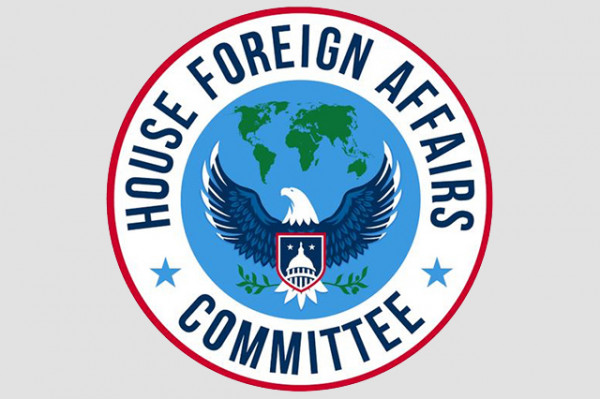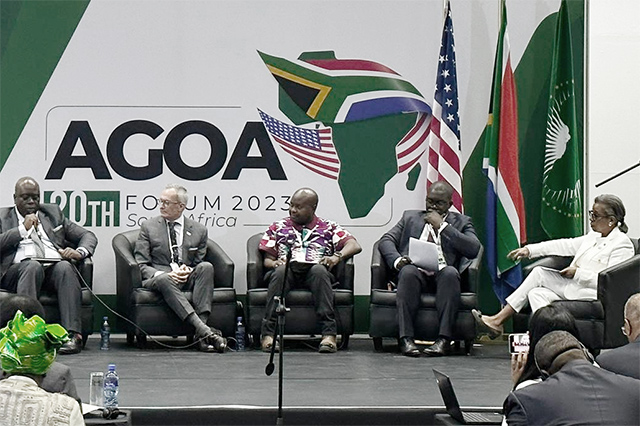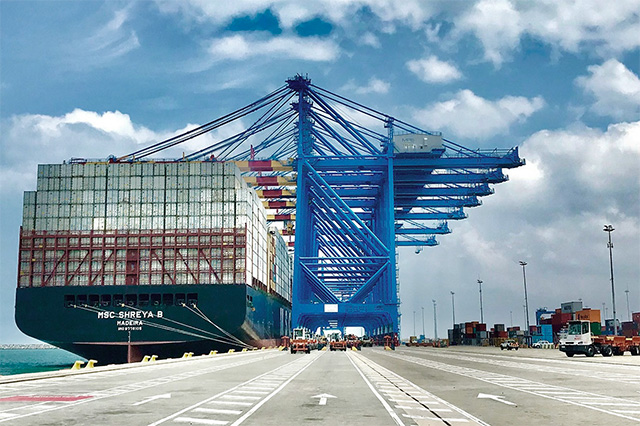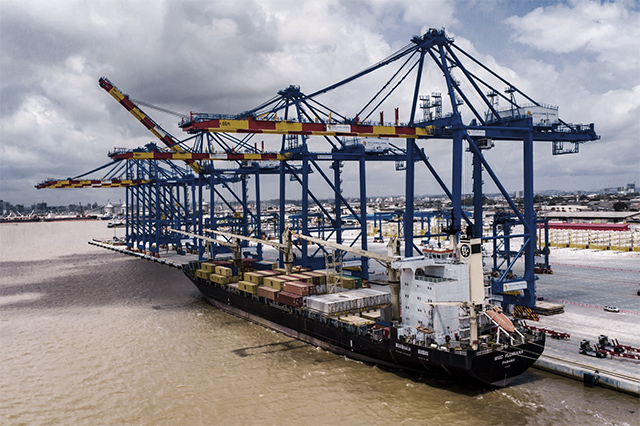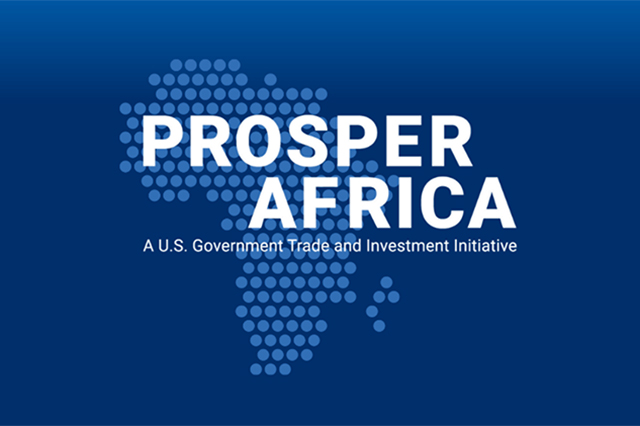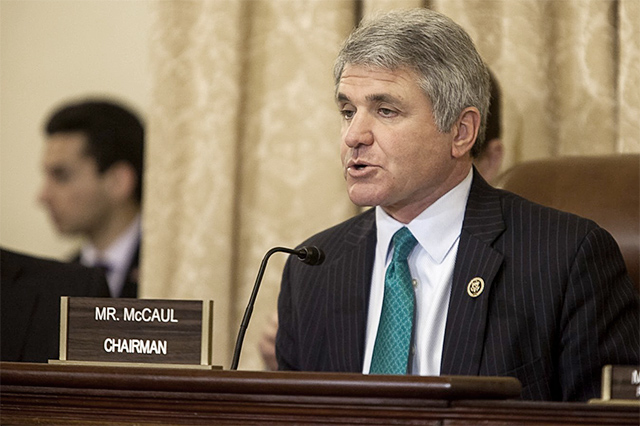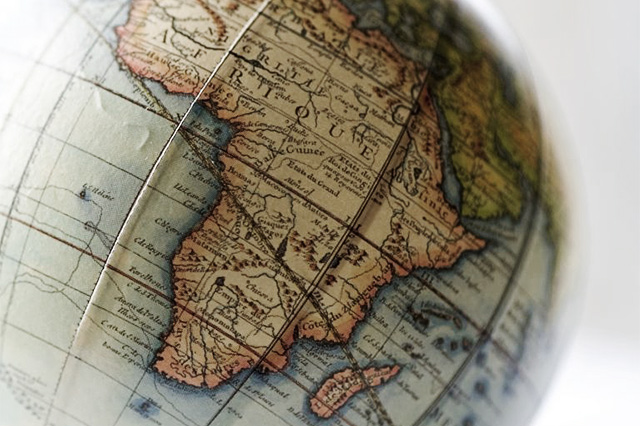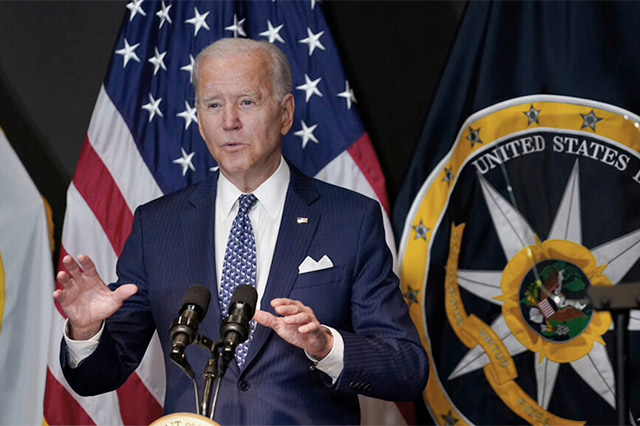The 'three issues that will make or break the Prosper Africa initiative'
The U.S. government’s Prosper Africa program, launched in 2019, aims to double two-way trade and investment between the United States and African countries and, in doing so, to put a new face on American foreign policy in Africa.
Despite the initiative’s embrace by two separate administrations, it has so far been slow to live up to expectations. The Prosper Africa Act, a draft piece of bipartisan legislation put forward in the U.S. House Foreign Affairs Committee, now languishes in Congress, overshadowed by other crises and attracting little attention.
Allowing the legislation to expire is a mistake. To help ensure its success, the Prosper Africa Act’s sponsors should address three key issues around its scope, strategic positioning, and diaspora engagement.
Today’s shifting geopolitical landscape makes the goals of Prosper Africa more important than ever before. U.S.-Africa relations have historically focused on humanitarian and security concerns, but Africa’s major economies have grown rapidly and should play a much broader and more strategic role in U.S. foreign policy.
Since 2009, when China edged out the United States as Africa’s largest bilateral trade partner, U.S.-Africa trade has declined from a peak of $142 billion in 2008 to just $64 billion in 2021. Outside of extractive industries, American business presence on the continent in some places trails that of countries like Turkey and India.
With its explicit focus on specific projects (for example, infrastructure development or export of U.S. goods), job creation, and shared prosperity, Prosper Africa aims to accelerate and expand an ongoing shift in U.S. foreign assistance toward more investment-driven approaches.
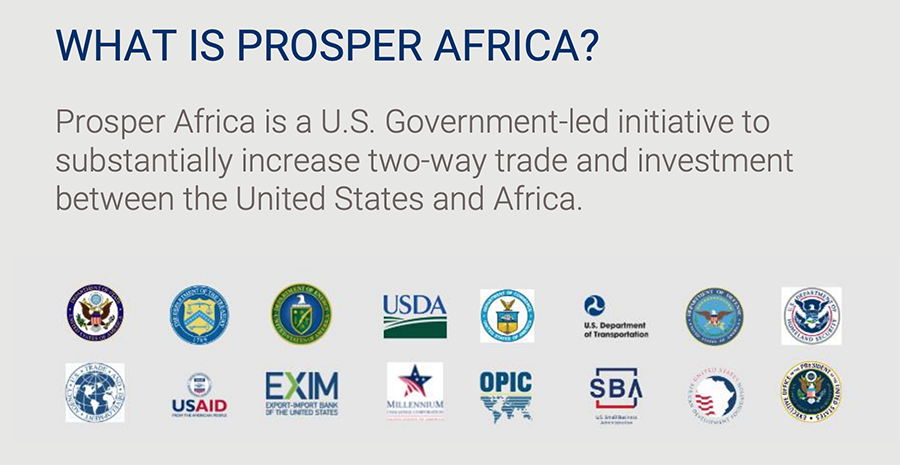
Recent disruptions in the global economy further reinforce the salience of Prosper Africa’s objectives. The increased financial flows and business engagement it envisions could be pivotal in helping African countries recover from massive economic shocks brought on by the coronavirus pandemic and by Russia’s invasion of Ukraine. They could also be essential for building infrastructure and public services to support economic transformations underpinning both U.S. and African interests, including clean energy transitions.
However, an investment-driven initiative needs stability to attract private-sector partners, and they will hesitate to engage with a program that may not last beyond an election cycle. That’s why the Prosper Africa Act is crucial. The bill would ensure that Prosper Africa is an established, non-partisan component of U.S. foreign assistance, making it more likely this presidential initiative continues under future administrations.
Furthermore, the Prosper Africa Act would provide congressional backing for the initiative’s structure and mandate and make several significant improvements to the executive program, including reworking its advisory council structure to include a wider and more diverse set of private-sector actors (including those from the African diaspora) than has historically been prioritized by U.S. investment platforms.
These worthy goals notwithstanding, the success of Prosper Africa may ultimately depend on how the initiative and the draft bill in Congress put forward to back it address three key issues.
First, the bill needs revision. Its expansive scope purposefully allows for flexibility but could prove unwieldy. The draft legislation is written without an explicit focus on any specific sectors of the economy. This is based on the rationale that the private sector’s interests and capacity should drive its areas of focus, and the U.S. government should not artificially narrow the range of priority investments.
But an initiative designed to serve as a one-stop shop for effectively everything may struggle to be efficient and focused enough to succeed. Congress should consider prioritizing a few specific industries based on criteria such as the U.S. private sector’s comparative advantage in spaces like pharmaceuticals, digital technologies, and higher education.
Second, the United States should utilize Prosper Africa to align its own strategic geopolitical and economic priorities with those of its African partners. For example, Prosper Africa could be a tool to help the United States diversify its critical minerals and technology supply chains away from China and Russia by facilitating investment in refining and processing of lithium, cobalt, nickel, and other minerals crucial for clean energy in countries like the Democratic Republic of the Congo and Zambia while also strengthening social and environmental safeguards.
A potential project still under review by the U.S. International Development Finance Corporation to finance the redevelopment of two lithium mines in Namibia is an example of Africa’s potential.
Finally, the U.S. Congress should also consider more ways of engaging African partners—especially those in anchor economies such as Kenya, Morocco, Nigeria, and South Africa—in shaping the legislation and the initiative. Policymakers, businesses, and civil society—both in Africa and in the U.S.-based African diaspora—have an important opportunity to help influence its content and direction and to ensure that it speaks not only to U.S. interests, but to the mutual benefits to be gained by both the United States and its African partners through a closer, more investment-focused relationship.
For decades, humanitarian and security concerns have dominated U.S. engagement with Africa, precisely because the United States rarely considered Africa a region of strategic interest. Now, in a changing geopolitical landscape, the United States needs to rethink its relationship with the continent. The Prosper Africa Act and the initiative it seeks to bolster represent a landmark effort to strengthen U.S. economic and business engagement in Africa—a move that would benefit all partners.
Yet to realize its full promise, the Prosper Africa Act must balance the bill’s expansive scope with some sectoral specificity, frame the initiative as one that aligns U.S. strategic economic priorities with those of African partners, and proactively engage stakeholders in key African markets, especially their U.S.-based diaspora. In an emerging multipolar world with rising powers, Congress should move to pass the Prosper Africa Act to ensure the United States secures a place as the economic partner of choice for Africa.
Click here to view the draft legislation: Bill H.R.6455 - Prosper Africa Act


